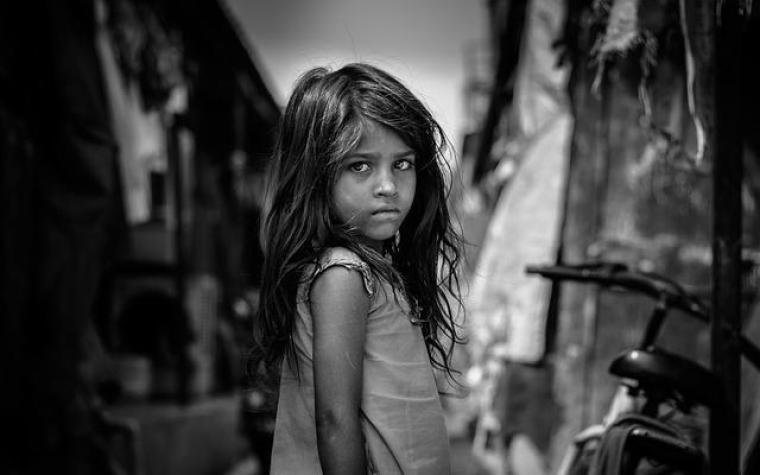
There are so many people in the world worse off than we are.
Here in Western society, we are very privileged. Instead of complaining, we should actually be thankful, as compared to many people in the world, we have everything we need at our fingertips, right?
I tend to use certain sayings on my kids when they refuse to eat their dinner.
“You know there are people in the world that would do anything for that meal,” I state as my daughter sits there frowning at her meat and vegies, day dreaming about ice-cream.
These and many other sayings, are commonplace about how great we have it here in Australia and particularly, the West.
Our easy life
The Cambridge English dictionary defines the word privilege as follows : ‘An advantage that only one person or group of people has, usually because of their position or because they are rich’.
When talking to those who have been on mission trips, a real sense that we have it easy here is echoed. To a certain degree they are correct. We have developed utilities and infrastructure which many poorer nations lack.
Sure, we have many things which should not be taken for granted, but they are part of a progressive society and I do not feel we should feel guilty and be labelled because we have such things, although we do have certain responsibilities which I will touch on later.
Privileged?
In my life, when I finished high school, I wanted to get into the electronics/computer industry as it was an area I naturally enjoyed. I found a Diploma level course to take me down this path, but I needed to be able to afford it. I took up a job delivering pizza five nights a week so I could attend my course of study the other two nights as there was no financial support from my parents or the government available to me.
I endured this for two years before completing my Diploma, and finally finding work, moving through various jobs, gaining experiences and making an effort as I went.
I landed a job in the ATM industry and while I am well below the national wages average, we can just afford to raise a family and have my wife off work to raise the kids.
Would you say I was privileged at any point?
While I would not consider myself ‘well-off’ as we have to budget our expenses carefully to make ends meet, I did choose to forecast what I would require to afford and sustain a family. To say I was privileged for doing this to the best of my ability is nothing less than an insult. Life was not handed to me on a silver platter.
Privileged reality
It is hardly fair for someone who chooses a lax lifestyle, (as it seems to be persons in this category who like to call out anybody who has more than they have ‘privileged’), to label those who did study and go onto work in professions, as being ‘privileged’.
Just because we have many things good here, does that make our struggles any less real? Does it mean we do not have a right to feel upset or run down by the very real problems and pressures we encounter? The stresses of working to make ends meet, the stresses of raising a family, the stresses of illness and the potential of having nowhere to live if you were to lose your home? There are currently just over 105,000 people homeless in Australia as a result of ill health or losing their jobs.
The statistics
Here are a few examples that maybe our society is not the privileged paradise it is made out to be. Liveable, yes. Comfortable, maybe not so much.
Here in Adelaide, South Australia, we now have the highest power prices in the world. This is actually a real struggle for a lot of people, fighting to make ends meet amongst other increasing expenses.
Here in Australia as of 2011 ABS results, we had 1.7 million people on anti-depressants and the numbers have increased since.
Here in Adelaide, South Australia, our population continues to climb. Yet our hospitals are being shut down or downsized when they already cannot handle peak demand and are regularly run above capacity. We have personally experienced huge delays with seeking urgent medical help.
Necessities of good economy
I do believe we have a responsibility to use what blessings a nation has in reserve to help other nations. If a nation’s economy is doing well, it should help developing countries – as Australia actually does to a surprisingly large extent both financially and through our military providing significant aid.
Australia currently gives 3.8278 billion dollars to various international aid programs, funded by our tax dollars. While it is easy to argue we need a lot of that money here as even a quarter of this amount would fix a lot of problems in Australia, the money does funnel to the more serious work which other nations lack well above our own and only a substantial amount of money will fix – infrastructure and education being two major ones which I do feel take priority to a certain degree.
To say we are doing nothing sitting in our little paradise while the world suffers is an immature statement.
How can a nation help other nations become established, rebuilt and developed if it does not have a viable economy with finance and experience available for such work?
While I believe the rich should be kept accountable, especially those involved in charity work, to whom much is given, much is expected.
In the Bible, there are stories of kings and individuals who were quite well off, and the message that echoes is: it is not what you have, but what you choose to do with it and how you treat those below you in hierarchical terms.
As Christians we should strive to do our best in order to bless others and we should encourage our countries to do the same. I feel myself and my country does its part on behalf of the world.

Michael Dahlenburg is an electronics technician. He is non-denominational and has previously been involved in church plants and assisting those in ministry. His interests include; enjoying family, home DIY, gardening, most things tech-related and driving his wife crazy with a constant stream of inventions! He lives with his wife Michelle and three children in God’s own land of Southern Adelaide, Australia.Michael Dahlenburg’s previous articles may be viewed at http://www.pressserviceinternational.org/michael-dahlenburg.html